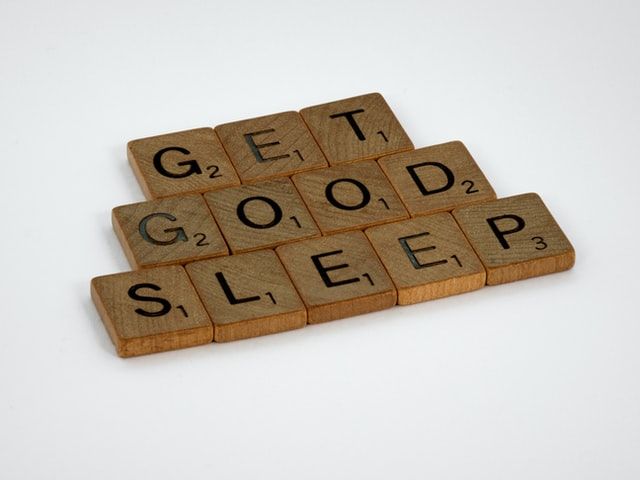
World Sleep Day is March 18
Many people cut back on sleep to focus more on work, personal obligations, or leisure. Unfortunately, being sleep-deprived can harm your general health, putting you at risk for certain chronic conditions. Proper self-care includes good sleep hygiene, which refers to the behavioral and environmental routines promoting good sleep.
March 18 is World Sleep Day, established by the World Sleep Society. This year’s theme of Quality Sleep, Sound Mind, Happy World presents an opportunity to increase awareness of how sleep affects overall health. This annual event also calls attention to sleep-related issues like drowsy driving, sleep disorders, and social aspects of sleep.
Importance of Healthy Sleep
In general, adults need a minimum of seven hours of sleep each night, but getting 7-9 hours is ideal. Unfortunately, more than 35 percent of people in the U.S. fall short of this goal, which contributes to about 38 percent of people nodding off during the day at least once a month.
Being sleep-deprived can diminish your mood and reduce your work productivity. It can also negatively affect how you feel the next day. Poor sleep can also contribute to chronic health problems like cardiovascular disease, type 2 diabetes, obesity, and depression.
Unhealthy sleep can also put you at greater risk for a car crash. Each month, about one in 20 people fall asleep while driving. Drowsy driving is potentially hazardous and contributes to more than 1,500 road fatalities and approximately 40,000 accidents involving injury.
Quantity of sleep is not the only marker of sleep hygiene. Your health also depends on getting quality sleep, which is sound, uninterrupted, and leaves you feeling rested. On the contrary, poor sleep quality makes you wake up repeatedly during the night or leaves you feeling tired the next day. Recurrent problems that get in the way of sleep quality could signal a sleep disorder having one or more of the following symptoms:
- Snoring
- Gasping for air
- Difficulty falling or staying asleep
- Not feeling rested after getting adequate sleep
- Waking up repeatedly during the night
A sleep disorder can persist even after sleeping for enough hours. One disorder is sleep apnea, which occurs when your airways become blocked, causing you to stop breathing several times during the night. Obesity and heart disease cause some cases of sleep apnea.
Insomnia is another common sleep disorder affecting one out of two adults at some point in their lives. Sufferers typically have difficulty falling asleep, or when they do, they can’t stay asleep throughout the night. Some people suffer long-term insomnia, sometimes linked to heart disease and high blood pressure. Over time, this disorder can increase stress, discourage physical activity and exercise, and contribute to poor diet.
If you think you have a sleep disorder, you should consult your doctor as soon as possible. Treatment for a sleep disorder can be the first important step to regaining restorative sleep and good overall health.
Tips for Better Sleep Hygiene
Our society often rewards overwork and the neglect of much-needed sleep. However, being sleep-deprived is not a badge of honor. Instead, it can interfere with good health.
Maintaining strong sleep hygiene means incorporating routines, environmental stimuli, and behaviors that promote adequate and quality sleep. There are several things you can do to improve or preserve your sleep health:
- Keep a consistent bedtime, even on the weekends or days off work. Going to bed at about the same time each night can help you establish a pattern of uninterrupted sleep. Consistency also means getting up at the same time each morning.
- Create a sleep-friendly environment. Close the blinds, set low lighting, and do whatever else you need to make your bedroom dark, quiet, and relaxing. Maintaining a relatively cool temperature can also promote sleep.
- Hold off on large meals close to bedtime, and stay away from caffeinated and alcoholic beverages in the evening. Also, if you smoke, try to quit or avoid tobacco altogether.
- Stay physically active during the day. Getting regular exercise or finding ways to move your body can get you tired enough to sleep at night. An active lifestyle can also help you fall asleep more easily.
- Avoid screens at least one hour before bed. Smartphones, computer screens, televisions, and other electronic devices with screens give off an artificial blue light that signals your brain to stay awake. If you must use a screen close to bedtime, use a blue light filter for screens or download a blue light filtering app for your smartphone.
Research and materials for this article were compiled, written, and distributed on behalf of the National Public Health Information Coalition. The views and opinions expressed in this blog are those of the various authors and do not necessarily reflect the official policy or position of the National Public Health Information Coalition or its members.
References
https://www.sleepfoundation.org/sleep-hygiene
https://worldsleepsociety.org/programs/world-sleep-day/
https://www.cdc.gov/sleep/data_statistics.html
https://www.cdc.gov/mmwr/preview/mmwrhtml/mm6008a2.htm?s_cid=mm6008a2_w
https://www.cdc.gov/sleep/features/getting-enough-sleep.html
https://sleepeducation.org/cdc-americans-sleep-deprived/
https://www.cdc.gov/bloodpressure/sleep.htm
https://www.cdc.gov/sleep/about_sleep/sleep_hygiene.html
https://www.webmd.com/sleep-disorders/sleep-blue-light

